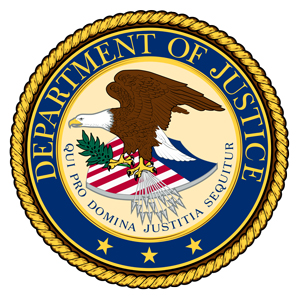August 12, 2023 - An Indiana man made his initial appearance at the federal district court in Detroit on Friday for allegedly sending  a threatening communication to an election worker in Michigan.
a threatening communication to an election worker in Michigan.
According to court documents, on or about Nov. 10, 2020, Andrew Nickels, 37, of Carmel, allegedly called the victim, who was the clerk of a local municipality, and left a voicemail in which Nickels stated, in part, “We’re watching your…mouth talk about how you think that there’s no irregularities…[Y]ou frauded out America of a real election…Guess what, you’re gonna pay for it, you will pay for it...[T]en million plus patriots will surround you when you least expect it, and your little infantile Deep State security agency has no time to protect you because they’ll be bought out and we’ll [expletive] kill you…[Y]ou will [expletive] pay for your [expletive] lying ass remarks…We will [expletive] take you out. [Expletive] your family, [expletive] your life, and you deserve a [expletive] throat to the knife…Watch your [expletive] back…watch your [expletive] back.”
Nickels is charged with one count of making a threatening interstate communication. If convicted, he faces a maximum penalty of five years in prison.
Acting Assistant Attorney General Nicole M. Argentieri of the Justice Department’s Criminal Division, Assistant Attorney General Matthew G. Olsen of the Justice Department’s National Security Division, U.S. Attorney Dawn N. Ison for the Eastern District of Michigan, and Acting Special Agent in Charge Devin Kowalski of the FBI Detroit Field Office made the announcement.
The FBI Detroit Field Office is investigating the case.
Trial Attorney Tanya Senanayake of the National Security Division’s Counterterrorism Section and Assistant U.S. Attorney Frances Lee Carlson for the Eastern District of Michigan are prosecuting the case.
This case is part of the Justice Department’s Election Threats Task Force. Announced by Attorney General Merrick B. Garland and launched by Deputy Attorney General Lisa O. Monaco in June 2021, the task force has led the Department’s efforts to address threats of violence against election workers, and to ensure that all election workers – whether elected, appointed, or volunteer – are able to do their jobs free from threats and intimidation. The task force engages with the election community and state and local law enforcement to assess allegations and reports of threats against election workers, and has investigated and prosecuted these matters where appropriate, in partnership with FBI Field Offices and U.S. Attorneys’ Offices throughout the country. A year after its formation, the task force is continuing this work and supporting the U.S. Attorneys’ Offices and FBI Field Offices nationwide as they carry on the critical work that the Task Force has begun.
Under the leadership of Deputy Attorney General Monaco, the Task Force is led by the Criminal Division’s Public Integrity Section and includes several other entities within the Justice Department, including the Computer Crime and Intellectual Property Section of the Criminal Division, the Civil Rights Division, the National Security Division, and the FBI, as well as key interagency partners, such as the Department of Homeland Security and the U.S. Postal Inspection Service. For more information regarding the Justice Department’s efforts to combat threats against election workers, read the Deputy Attorney General’s memo.
To report suspected threats or violent acts, contact your local FBI office and request to speak with the Election Crimes Coordinator. Contact information for every FBI field office may be found here: www.fbi.gov/contact-us/field-offices. You may also contact the FBI at 1-800-CALL-FBI (225-5324) or file an online complaint at www.tips.fbi.gov. Complaints submitted will be reviewed by the task force and referred for investigation or response accordingly. If someone is in imminent danger or risk of harm, contact 911 or your local police immediately.
An indictment is merely an allegation. All defendants are presumed innocent until proven guilty beyond a reasonable doubt in a court of law.
Source: DOJ Release








